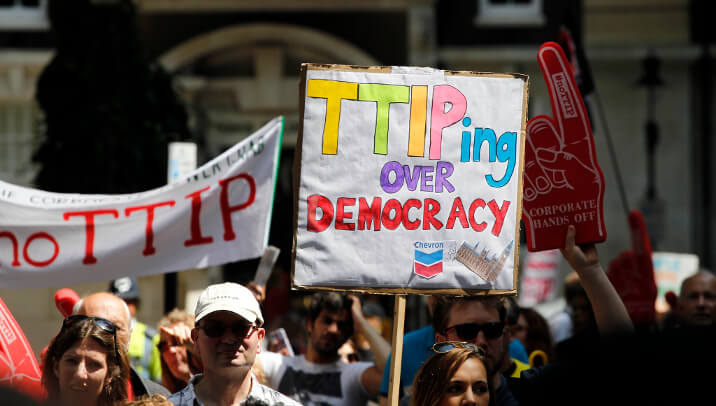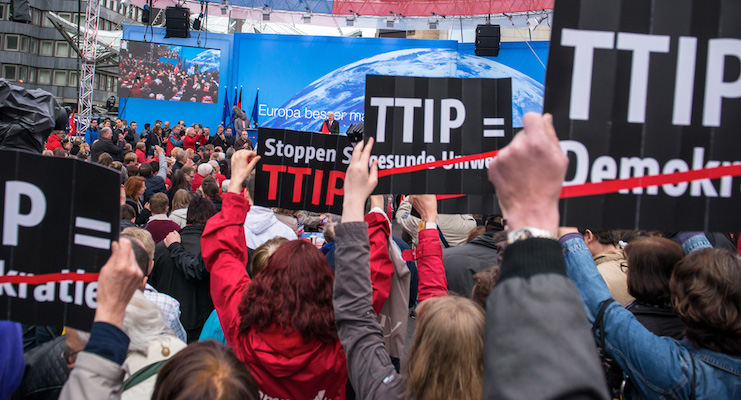Legal statement on investment protection in TTIP and CETA
Investment protection and investor-state dispute settlement (ISDS) mechanisms are perhaps the most contentious aspects of TTIP and CETA. These mechanisms provide foreign investors with the right to sue the EU or its Member States in private tribunals over potential losses in profit due to current or new public welfare regulations.
To address this, we, the Stop TTIP European Initiative, are presenting this legal statement signed by 101 professors of law from 24 European countries.
The goal of this statement is to convey to European decision-makers that a significant part of the legal community finds the investor protection mechanisms within the free trade deals TTIP and CETA to be highly problematic and not compatible with the rule of law. The statement outlines the fundamental legal issues within these mechanisms and explains how they pose grave threats to public interest, democratic principles and state budgets.
“The investment protection systems in TTIP and CETA pose an unnecessary, and grave, threat to democracy and the public interest. The tribunal system included in CETA, and proposed for TTIP, is better than the arbitration provided for in many other investment treaties, but it does not eliminate the risk of an excessively broad interpretation of investor rights. Given the quality of judicial review in the domestic legal systems of the parties, it is also unnecessary to establish an international tribunal that grants investors privileged access. It is for these reasons that I call for the investor protection systems to be eliminated from both TTIP and CETA,” states signatory Professor Nico Krisch from the Graduate Institute Geneva.
Over 100 law professors from across Europe have come together to send a clear message to EU decision makers demanding these mechanisms be excluded from TTIP and CETA.
The drafting process of the statement has been coordinated by the Stop TTIP European Initiative which gathered over 3.5 million signatures against TTIP and CETA.
The full text of the Legal Statement is available in:











